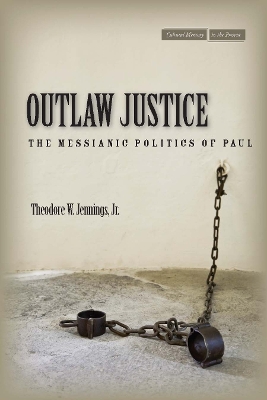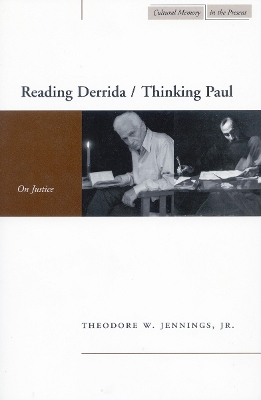Cultural Memory in the Present
2 total works
This book offers a close reading of Romans that treats Paul as a radical political thinker by showing the relationship between Paul's perspective and that of secular political theorists. Turning to both ancient political philosophers (Plato, Aristotle, and Cicero) and contemporary post-Marxists (Agamben, Badiou, Derrida, and Žižek), Jennings presents Romans as a sustained argument for a new sort of political thinking concerned with the possibility and constitution of just socialities.
Reading Romans as an essay on messianic politics in conversation with ancient and postmodern political theory challenges the stereotype of Paul as a reactionary theologian who "invented" Christianity and demonstrates his importance for all, regardless of religious affiliation or academic guild, who dream and work for a society based on respect, rather than domination, division, and death. In the current context of unjust global empires constituted by avarice, arrogance, and violence, Jennings finds in Paul a stunning vision for creating just societies outside the law.
This book explores the interweaving of several of Derrida’s characteristic concerns with themes that Paul explores in Romans. It argues that the central concern of Romans is with the question of justice, a justice that must be thought outside of law on the basis of grace or gift. The many perplexities that arise from thus trying to think justice outside of law are clarified by reading Derrida on such themes as justice and law, gift and exchange, duty and debt, hospitality, cosmopolitanism, and pardon.
This interweaving of Paul and Derrida shows that Paul may be read as a thinker who wrestles with real problems that are of concern to anyone who thinks. It also shows that Derrida, far from being the enemy of theological reflection, is himself a necessary companion to the thinking of the biblical theologian. Against the grain of what passes for common wisdom this book argues that both Derrida and Paul are indispensable guides to a new way of thinking about justice.

